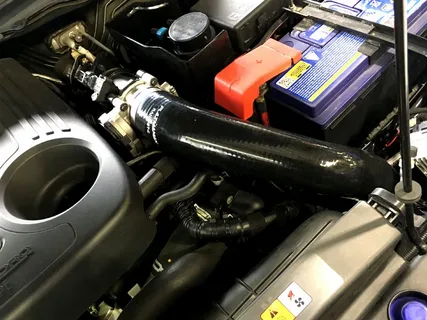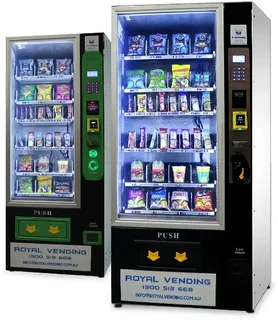When powering our devices, vehicles, and gadgets, 12V lithium batteries have become a go-to choice for many. Known for their lightweight design and impressive energy density, these batteries are revolutionizing how we think about power storage. But how long can you expect your 12V Lithium-Battery to last? And what factors influence its performance over time? In this comprehensive guide, we’ll dive deep into the lifespan of 12-V Lithium-Batteries.
Maximizing the Life of Your 12V Lithium-Battery: Essential Tips
Proper care and maintenance can significantly extend the lifespan of your 12V Lithium-Battery. Here are some essential tips to help you get the most out of your battery:
Avoid Deep Discharge
Try to keep your battery charge between 20% and 80%. Deep discharges can stress the battery and shorten its life. Recharge before it drops below 20%.
Use a Quality Charger
Ensure that you use a charger designed specifically for Lithium-Batteries. An improper charger can overcharge or undercharge the battery, damaging its cells over time.
Maintain Optimal Temperature
Lithium-Batteries perform best when kept at moderate temperatures. Avoid charging or using your battery in extreme heat or cold, as this can reduce capacity and lifespan.
Store Properly When Not in Use
If you’re not using your 12V Lithium-Battery for an extended period, store it in a cool, dry place with around 40-60% charge to prevent degradation.
The Impact of Temperature on Lithium Battery Performance
Temperature plays a crucial role in the performance of Lithium Battery. These batteries operate optimally within a specific temperature range, typically between 20°C and 25°C (68°F to 77°F). When exposed to extreme heat or cold, their efficiency can significantly decrease.
High temperatures can cause battery degradation and reduce overall lifespan. Excessive heat accelerates chemical reactions inside the battery, leading to swelling or even leakage. On the other hand, low temperatures reduce capacity and sluggish performance, making it difficult for devices to draw sufficient power when needed.
Maintaining an appropriate temperature environment is essential for maximizing both performance and longevity. Using insulation during colder months or avoiding direct sunlight in warmer seasons helps protect your investment while ensuring reliable operation throughout its life cycle.
How to Extend the Lifespan of 12-V Lithium-Batteries: Best Practices
To extend the lifespan of your 12-V Lithium-Batteries, start by maintaining an optimal charging routine. Avoid overcharging or discharging them completely. Ideally, keep the charge level between 20% and 80%. This practice minimizes stress on the battery cells.
Temperature control is another crucial factor. Store and operate your batteries in a moderate temperature range. Extreme heat can accelerate degradation, while extreme cold may temporarily reduce performance. A stable environment ensures reliability.
Regular maintenance checks are essential as well. Inspect connections for corrosion or damage that could hinder performance. Keeping terminals clean helps ensure efficient power transfer and prolongs battery life significantly.
Charging Habits That Improve the Longevity of Lithium-Battery
Proper charging habits are crucial for extending the life of your 12V Lithium-Battery. Avoid frequently letting your battery drop below 20% charge. Keeping it between 20% and 80% state-of-charge is ideal. This range minimizes stress on the cells, promoting better health over time.
Using a quality charger that matches your battery’s specifications can also make a significant difference. Smart chargers often have features like temperature monitoring and automatic shut-off, ensuring safe charging practices that prevent overheating or overcharging.
Be mindful of charging speed. Fast charging may seem convenient, but it can generate excess heat, negatively impacting lifespan. Opting for slower charges protects the integrity of the cells and helps maintain optimal performance throughout its use.
What Causes 12V Lithium-Battery Degradation and How to Prevent It
12V Lithium-Battery degradation is often caused by a combination of factors related to usage and environmental conditions. High temperatures can accelerate chemical reactions within the battery, leading to faster wear and reduced capacity over time. Consistent exposure to extreme heat or cold compromises performance and shortens lifespan.
Another significant factor is the depth of discharge (DoD). Regularly draining your battery close to zero can lead to accelerated degradation. For optimal longevity, keep the charge between 20% and 80%.
Additionally, charging habits play a crucial role in battery health. Using cheap chargers or inconsistent charging practices can create voltage spikes that harm internal components. Opting for high-quality chargers with built-in protections will help maintain your battery’s integrity longer.
Signs Your 12V Lithium-Battery is Reaching the End of Its Lifespan
As your 12V Lithium-Battery ages, you may notice a few telltale signs indicating it’s time for a replacement. One of the most common indicators is reduced capacity, where the battery fails to hold a charge as effectively as it once did. Pay attention if you find yourself recharging more frequently or experiencing shorter usage times.
Another sign is unusual swelling or deformation of the battery casing. This can occur due to internal chemical reactions and could indicate potential failure. Pay attention to this warning is crucial; safety should always come first.
Additionally, inconsistent performance can signal an impending end-of-life scenario. If your devices powered by the battery start malfunctioning or shutting down unexpectedly, your 12V Lithium-Battery has likely reached its limits and needs evaluation or replacement soon.
The Role of Battery Management Systems in Enhancing Battery Performance
Battery management systems (BMS) are crucial in optimizing the performance of 12-V Lithium-Batteries. These advanced systems monitor battery health, ensuring each cell operates within safe limits. A BMS helps maintain energy efficiency and extends overall lifespan by preventing overcharging and deep discharging.
Additionally, BMS technology balances the charge across cells, promoting uniformity throughout the battery pack. This balancing act increases reliability while maximizing performance during operation. A well-managed system can significantly enhance energy output and efficiency for various applications.
Furthermore, modern BMS solutions often include temperature monitoring features that protect against extreme conditions. They adjust charging rates based on environmental factors to safeguard battery integrity.
The Science behind 12V Lithium-Battery Cycle Life and How It Affects Usage
Cycle life refers to the number of complete charge and discharge cycles a 12V Lithium-Battery can endure before its capacity significantly declines. This is influenced by factors like temperature, depth of discharge, and charging rates. Understanding cycle life helps users gauge how their batteries will perform over time.
Each cycle slightly diminishes the battery’s maximum capacity due to chemical reactions within the cells. As these reactions accumulate, internal resistance increases, leading to reduced efficiency. Users might notice they need to recharge more frequently as cycles add up.
Different applications place varied demands on battery usage. For instance, frequent deep discharges may shorten lifespan markedly compared to shallow discharges in consistent use cases. Knowing this allows for tailored strategies that enhance performance and longevity based on specific needs.
Comparing Lithium Batteries with Other Battery Types: Lifespan and Performance
When comparing Lithium Batteries to other types, the differences in lifespan and performance stand out. Lithium-Batteries typically offer a longer cycle life, often exceeding 2,000 charge cycles under optimal conditions. In contrast, lead-acid batteries usually range between 500 and 1,000 cycles. This longevity means fewer replacements over time.
Performance also varies significantly. Lithium-Batteries maintain higher efficiency throughout their discharge cycle, delivering consistent power until depletion. Lead-acid counterparts experience voltage drops as they deplete, resulting in diminished performance during use.
Another factor is weight and size; lithium options are lighter and more compact than other battery types like AGM or gel cells. This makes them ideal for applications where space is limited or weight is crucial in overall design considerations.
Common Myths About 12V Lithium-Battery Lifespan Debunked.
Many believe all Lithium-Batteries can last forever with the proper care. In reality, even 12-V Lithium-Batteries have a finite lifespan influenced by temperature and usage patterns. Proper maintenance can extend their life, but they will not last indefinitely.
Another common myth is that frequent charging damages the battery. Contrary to this belief, modern Lithium-Batteries undergo less wear from regular top-ups than older technologies. Short bursts of charge are often more beneficial than letting the battery fully deplete before recharging.
Some users think using a battery until completely drained ensures optimal performance. This could not be further from the truth for 12-V Lithium-Batteries; deep discharges shorten their lifespan significantly. Keeping them within an ideal state of charge leads to better longevity and efficiency.
What to Expect From the Performance of a 12V Lithium-Battery over Time
A 12V Lithium-Battery delivers impressive performance right from the start. Users can expect high energy density, meaning more power in a compact size. Initially, these batteries provide consistent voltage output and are ideal for various applications, whether powering recreational vehicles or solar systems.
As time progresses, some capacity loss may occur. However, this decline is typically gradual compared to other battery types. Most quality Lithium-Batteries maintain about 80% of their original capacity even after several years of use under proper conditions.
It is essential to monitor usage patterns and environmental factors that affect performance. Regular checks on charging habits and depth of discharge can help ensure your battery continues performing optimally throughout its lifespan. This proactive approach maximizes efficiency and usability over time.
The Environmental Impact of 12V Lithium-Battery Lifespan and Disposal
The environmental impact of 12-V Lithium-Batteries is crucial as their usage continues to rise. While these batteries offer efficiency and longevity, their production and disposal can pose significant challenges. Mining for lithium and other materials often leads to habitat destruction, water pollution, and depletion of natural resources.
Proper disposal methods are essential in minimizing ecological harm. Lithium-Batteries require specialized facilities due to the risk of chemical leakage or fire hazards, unlike traditional lead-acid batteries, which are more easily recycled. As a result, improper disposal can lead to toxic substances contaminating soil and waterways.
To mitigate these issues, recycling programs have emerged that focus on recovering valuable materials from old batteries. Encouraging consumers to participate in such programs helps reduce waste and promotes sustainable practices within the battery industry.
Conclusion
Understanding the lifespan and performance of 12V Lithium Batteries is essential for anyone relying on them. Knowledge empowers users to make informed decisions, ensuring they get the most out of their investment. Incorporating best practices into your battery maintenance routine can significantly enhance longevity. By focusing on charging habits, temperature management, and depth of discharge, you are setting yourself up for success.
FAQs
What is the average lifespan of a lithium battery?
Typically, you can expect a quality lithium battery to last five to fifteen years, depending on usage and care. Regular maintenance and proper charging practices significantly influence longevity.
How do I know when my 12V Lithium-Battery needs replacing?
Signs of declining performance include reduced runtime, difficulty holding a charge, or visible physical damage. If your battery shows these symptoms consistently, it may be time for an upgrade.
Can I recycle my old 12V lithium batteries?
Yes! Recycling is crucial for minimizing environmental impact. Many retailers offer recycling programs specifically for batteries. Be sure to follow local regulations regarding disposal.





